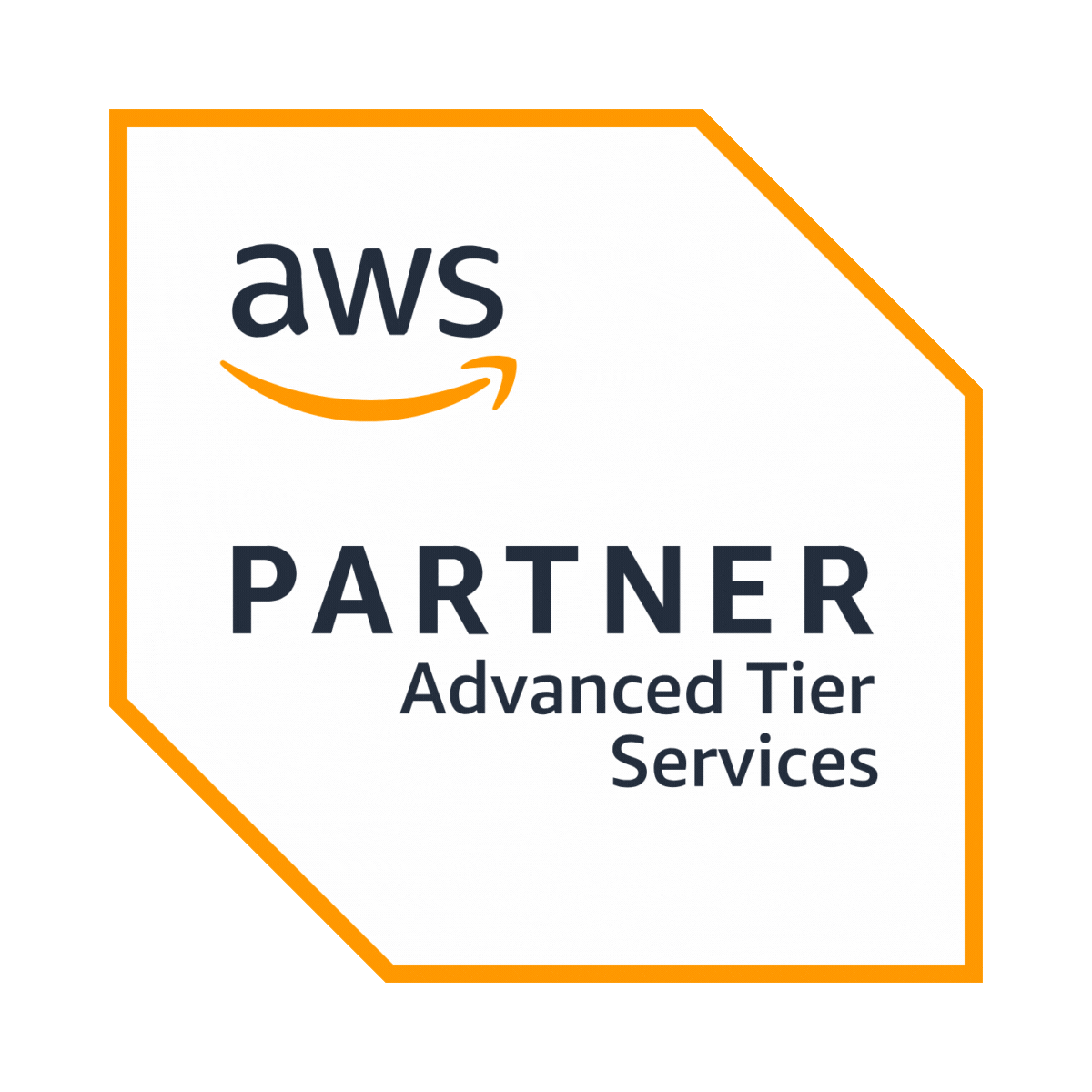In the modern healthcare environment, effective data management is crucial for success. Healthcare organizations deal with vast amounts of data from various sources, electronic health records (EHRs), medical imaging, wearable devices, and patient monitoring systems. However, many healthcare providers struggle to manage and use this data in a way that improves patient outcomes, optimizes operations, and meets regulatory requirements.
Enterprise data management in healthcare addresses these challenges by providing a framework to manage, integrate, and secure data across departments and systems. This approach ensures that healthcare organizations can access accurate and timely data to make informed decisions, improve care delivery, and maintain operational efficiency.
Rather than just storing data, enterprise data management ensures that data is consistent, accessible, and actionable. As healthcare organizations continue their digital transformation, implementing a strong EDM system is essential to handle the growing volume of data while maintaining patient confidentiality and complying with industry standards like HIPAA.
With the healthcare sector under increasing pressure to improve care quality and reduce costs, organizations are investing in enterprise data management in healthcare solutions to improve efficiency, enhance patient care, and meet regulatory demands.
To help achieve these goals, healthcare organizations are turning to data and analytics services to develop effective strategies that meet their evolving data management needs.

What is enterprise data management in healthcare?
Enterprise data management (EDM) in healthcare refers to the processes, technologies, and practices used to manage and ensure the availability, accuracy, security, and accessibility of data across an entire healthcare organization. The goal of EDM is to ensure that healthcare data is consistent, integrated, and easily accessible to the right stakeholders, when needed, while complying with regulatory requirements.
Key components of enterprise data management in healthcare
- Data Integration
Healthcare organizations collect data from multiple sources, including patient records, diagnostic results, lab tests, billing systems, and clinical notes. Integrating this data across various platforms allows healthcare providers to get a comprehensive view of patient health, improving decision-making and clinical outcomes. - Data Quality and Governance
Maintaining high-quality data is essential in healthcare. This means ensuring data is accurate, up-to-date, and free from errors or inconsistencies. Data governance ensures that there are clear policies for handling, accessing, and maintaining this data, while ensuring compliance with privacy regulations like HIPAA. - Data Security and Compliance
Healthcare data is highly sensitive. Protecting this data from breaches, ensuring patient confidentiality, and meeting strict legal standards are paramount. Enterprise data management frameworks focus on implementing robust security protocols and compliance measures to safeguard data and maintain trust. - Data Accessibility
For data to be useful, it needs to be accessible to those who need it. This includes clinicians, administrators, and analysts. Enterprise data management ensures that data is organized and structured in a way that allows for easy retrieval, analysis, and reporting, improving operational efficiency. - Advanced Analytics and AI Integration
With the rise of predictive analytics and artificial intelligence (AI), healthcare organizations are increasingly looking to integrate AI tools into their data management systems. By leveraging advanced analytics, organizations can gain deeper insights from their data, improving both patient care and organizational efficiency.
Enterprise data management in healthcare is not just about organizing data, it’s about creating an environment where data can be securely accessed, integrated, and analyzed to drive better clinical and operational decisions.
To successfully implement enterprise data management in healthcare, organizations often turn to AI and data services and machine learning development services that help optimize their data strategy and improve data-driven decision-making.
Benefits of effective enterprise data management
Implementing robust enterprise data management in the healthcare system offers a wide range of benefits that directly impact both patient care and operational efficiency. Here are some of the key advantages:
1. Improved patient care and outcomes
Having accurate and up-to-date patient data at the point of care enables healthcare providers to make informed decisions quickly. This leads to better treatment plans, fewer medical errors, and ultimately improved patient outcomes. With enterprise data management in healthcare, clinicians can access comprehensive patient histories, lab results, and imaging, ensuring they are equipped to provide the best possible care.
2. Enhanced operational efficiency
Data management systems allow healthcare organizations to streamline workflows, reduce redundancies, and improve resource allocation. For example, with integrated systems, hospitals can optimize staff scheduling, manage equipment inventories more effectively, and ensure that patient appointments and treatments are well-coordinated. This helps reduce wait times and operational delays, leading to smoother day-to-day operations.
3. Better compliance and data security
Healthcare organizations must comply with numerous regulations, including HIPAA, which governs the privacy and security of patient data. By implementing enterprise data management practices, organizations can ensure that their data handling and storage processes meet regulatory standards. Automated compliance checks and data encryption further protect patient information, mitigating the risks of data breaches or non-compliance penalties.
4. Data-driven decision making
With accurate, comprehensive, and integrated data, healthcare leaders can make more informed, strategic decisions. This can lead to better financial management, improved patient engagement strategies, and more effective care delivery models. Advanced analytics tools that integrate with EDM systems help healthcare organizations extract meaningful insights, ultimately improving both clinical and business outcomes.
5. Cost reduction and financial optimization
A well-managed data system helps eliminate inefficiencies, reduce errors, and lower the cost of operations. By improving workflow, streamlining administrative tasks, and reducing the risk of duplicate testing or treatments, healthcare organizations can significantly cut costs. Moreover, better data integration supports financial planning and management by providing accurate insights into revenue streams, expenditures, and cost-saving opportunities.
By investing in enterprise data management in healthcare, organizations can experience these key benefits while meeting the ever-growing demand for data-driven healthcare solutions. To implement a comprehensive data management strategy, healthcare providers often rely on specialized AI and data services and generative AI development services.
Challenges in implementing enterprise data management
While the benefits of enterprise data management in healthcare are clear, many organizations encounter significant challenges when trying to implement effective data management strategies. Addressing these challenges is crucial for realizing the full potential of healthcare data.
1. Data silos and integration issues
Healthcare data often exists in silos across different systems, including EHRs, lab databases, imaging systems, and billing platforms. These disconnected systems make it difficult to create a unified view of patient information, leading to inefficiencies and potential errors. Integrating data across these disparate systems is a major challenge for healthcare organizations, especially when dealing with legacy systems that were not designed to work together.
2. Data quality and consistency
Data quality issues, such as missing or incorrect information, inconsistent formats, or outdated records, can undermine the effectiveness of enterprise data management in healthcare. Without reliable data, predictive analytics, clinical decision-making, and operational improvements are compromised. Ensuring data consistency and accuracy across all departments is a continuous effort that requires proper governance, regular audits, and validation processes.
3. Regulatory compliance and security
The healthcare industry is heavily regulated, with strict privacy laws like HIPAA governing how patient data is collected, stored, and shared. Ensuring compliance with these regulations while managing large volumes of sensitive data is a complex task. Additionally, healthcare organizations must implement robust data security measures to protect against data breaches and cyberattacks, which are increasingly common targets for malicious actors.
4. Lack of skilled workforce
Building and maintaining an effective enterprise data management in healthcare strategy requires a specialized workforce with expertise in data management, analytics, and IT. Unfortunately, there is a shortage of skilled professionals in the healthcare sector, making it difficult to implement and sustain advanced data management systems. Healthcare organizations must invest in training and development or collaborate with external experts to bridge this gap.
5. Resistance to change
Healthcare organizations, especially larger institutions, may face resistance from staff when adopting new data management systems. Clinicians, administrators, and IT personnel may be accustomed to legacy systems and may be reluctant to adopt new technologies due to concerns about usability, training, or disruption to existing workflows. Overcoming this resistance requires strong leadership, clear communication, and a commitment to ongoing support and training.
Despite these challenges, many healthcare organizations are successfully implementing enterprise data management in healthcare solutions by prioritizing data integration, investing in the right technologies, and fostering a culture of collaboration and continuous improvement. Healthcare organizations that address these challenges head-on can create more efficient, secure, and data-driven environments that benefit both patients and providers.
Best practices for successful enterprise data management implementation
Successfully implementing enterprise data management in healthcare requires careful planning, strategic decision-making, and a focus on continuous improvement. By following these best practices, healthcare organizations can maximize the benefits of their data management initiatives:
1. Establish a clear data governance framework
A well-defined data governance strategy is essential for ensuring data quality, security, and compliance. Healthcare organizations should develop policies and procedures for data access, usage, and management across departments. This includes defining roles and responsibilities for data ownership, creating standards for data entry, and ensuring consistency in data formats. A strong governance framework ensures that data is reliable and accessible to those who need it, when they need it.
2. Prioritize data integration and interoperability
To break down data silos, healthcare organizations must prioritize integrating data across various systems, such as EHRs, lab systems, imaging platforms, and patient monitoring devices. This integration enables a unified view of patient health, improving both clinical decision-making and operational efficiency. Leveraging advanced data integration platforms and APIs helps facilitate seamless communication between disparate systems.
3. Invest in advanced analytics and AI
Healthcare organizations should incorporate predictive analytics, machine learning, and artificial intelligence into their enterprise data management in healthcare strategy. These technologies can analyze large datasets in real time, identify patterns, predict patient outcomes, and optimize care delivery. AI-driven solutions help healthcare providers make more accurate and timely decisions, enhancing patient care and operational efficiency. Investing in AI and data services can further accelerate this process.
4. Focus on data security and compliance
Given the sensitive nature of healthcare data, ensuring robust data security is critical. Healthcare organizations must implement encryption, access control measures, and regular security audits to protect patient data from unauthorized access or breaches. Compliance with regulations like HIPAA should be a top priority, with systems designed to meet legal requirements while safeguarding patient privacy.
5. Foster a culture of collaboration and training
Successful data management in healthcare requires collaboration across all levels of the organization. Data scientists, clinicians, IT staff, and administrators must work together to ensure that data is managed effectively and used to improve care outcomes. Additionally, organizations must invest in continuous training programs to ensure that staff are equipped with the necessary skills to work with new data management technologies and systems.
6. Monitor, assess, and continuously improve
Data management is an ongoing process. Healthcare organizations should regularly assess the effectiveness of their data management systems and make necessary adjustments. Monitoring data quality, system performance, and user feedback will help identify areas for improvement. By fostering a culture of continuous improvement, organizations can ensure their data management systems remain efficient, secure, and scalable.
By following these best practices, healthcare organizations can implement enterprise data management in healthcare systems that improve patient outcomes, streamline operations, and ensure compliance with regulatory standards.

The future of enterprise data management in healthcare
As healthcare organizations continue to evolve and embrace digital transformation, the future of enterprise data management in healthcare is being shaped by new technologies, emerging trends, and changing patient expectations. Here are some key developments that are expected to influence EDM in healthcare:
1. The rise of artificial intelligence and machine learning
AI and machine learning are set to play a central role in enterprise data management in healthcare. By integrating AI into data management systems, healthcare organizations can analyze vast amounts of data more quickly and accurately. Predictive models powered by machine learning will enable providers to make more informed clinical decisions, while AI-driven tools will streamline administrative tasks, reduce errors, and improve patient outcomes. The use of machine learning development services will be essential for driving these advancements.
2. Real-time data processing with edge computing
Edge computing, where data is processed locally rather than being sent to a centralized cloud, is becoming increasingly important in healthcare. With the proliferation of IoT devices and wearables, healthcare providers will need real-time data processing capabilities to monitor patients continuously. Edge computing allows for faster decision-making, improved patient monitoring, and timely interventions, all of which contribute to better patient care and operational efficiency.
3. Greater interoperability across systems
As healthcare data continues to grow in volume and complexity, achieving seamless interoperability between various health IT systems will be crucial. The future of enterprise data management in healthcare will involve a greater emphasis on ensuring that data from diverse sources, such as EHRs, imaging, labs, and wearables, can easily flow between different systems and organizations. This will facilitate comprehensive patient records, improve coordination of care, and eliminate inefficiencies caused by fragmented data.
4. Enhanced data security and privacy protocols
With healthcare data being a prime target for cyberattacks, ensuring robust data security and privacy will remain a top priority. The future will see the implementation of advanced encryption technologies, biometric access controls, and decentralized data storage systems that ensure patient information remains secure. As regulatory standards evolve, healthcare organizations will need to stay ahead of compliance requirements to avoid penalties and protect patient trust.
5. Patient-centric data management
The future of enterprise data management in healthcare will also be more patient-centric. With increasing consumer demand for personalized care, healthcare organizations will place more focus on empowering patients to access and control their own health data. Patients will be able to share their data with different providers and receive tailored treatments based on their unique health profiles. This shift will require healthcare organizations to adopt more flexible data management frameworks that support patient autonomy while ensuring data security.
6. Use of generative AI for data enhancement
Generative AI technologies are gaining traction in the healthcare sector, especially in the area of data enhancement. These technologies can synthesize new medical data or generate potential patient scenarios, helping to simulate outcomes, assist in clinical decision-making, and improve predictive models. By adopting generative AI development services, healthcare organizations can unlock new insights and improve their enterprise data management systems.
As healthcare continues to embrace digital transformation, enterprise data management in healthcare will evolve to incorporate these emerging technologies and trends. Organizations that stay ahead of these innovations will be better equipped to improve care quality, optimize operations, and meet the needs of an increasingly tech-savvy patient population.
Conclusion
In an era where healthcare data is growing exponentially, implementing robust enterprise data management in the healthcare system is no longer optional, it’s a necessity. By centralizing and integrating data from various sources, healthcare organizations can improve clinical decision-making, enhance patient outcomes, streamline operations, and ensure regulatory compliance.
From better patient care through accurate, real-time information to optimizing operational efficiency and reducing costs, the advantages of effective data management are clear. However, the journey to successful implementation comes with its challenges, such as data silos, integration issues, and the need for skilled professionals. By adopting best practices, like prioritizing data governance, investing in AI and machine learning, and ensuring strong data security, healthcare organizations can overcome these hurdles and build a future-proof data management system.
Looking ahead, the future of enterprise data management in healthcare is filled with promise, driven by emerging technologies such as AI, machine learning, edge computing, and generative AI. These innovations will continue to transform how healthcare data is managed and utilized, further improving patient care and operational efficiency.
Get in touch with our data experts today for a free consultation!














